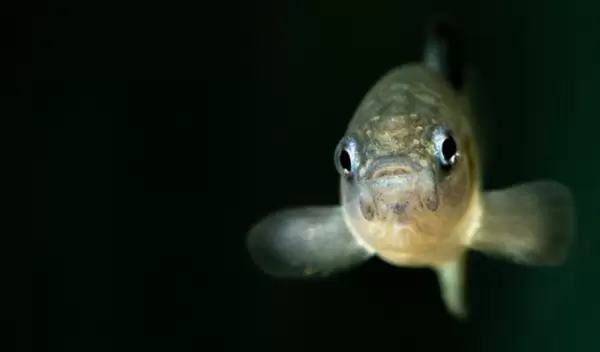
Endangered Devils Hole pupfish is one of the most inbred animals known
As its name implies, the Devils Hole pupfish lives in a truly hellish environment.
Confined to a single deep limestone cave in Nevada's Mojave Desert, 263 of the fish live in water that hovers around 93 degrees Fahrenheit year-round, with food resources so scarce they are always on the edge of starvation, and with oxygen levels so low that most other fish would die immediately. The pupfish, Cyprinodon diabolis, live in the smallest habitat of any known vertebrate.
New research now documents the extreme effect these harsh and isolated conditions have on this fish's genetic diversity.
In a U.S. National Science Foundation-supported paper published in the journal Proceedings of the Royal Society B, University of California, Berkeley, biologists report the first complete genome sequences of eight pupfish species from the American Southwest — 30 individuals in all, including eight Devils Hole pupfish. Astoundingly, the Devils Hole pupfish is so inbred that 58% of the genomes of these eight individuals are identical, on average.
"High levels of inbreeding are associated with a higher risk of extinction, and the inbreeding in the Devils Hole pupfish is equal to or more severe than levels reported so far in other isolated natural populations," said lead researcher Christopher Martin of UC Berkeley. Other pupfish species are also inbred, the researchers found, but only between 10% and 30% of their genomes are identical.
David Tian, lead author of the study, said that the level of inbreeding in the Devils Hole pupfish is equivalent to what would happen if four to five generations of siblings mated with one another.
That tends to burn in or fix, rather than weed out, harmful mutations, potentially dooming a population to extinction by mutational meltdown. The Devils Hole pupfish species is currently holding its own in the wild and in captive or "refuge" populations, but such low genetic diversity could spell trouble as climate changes and human impacts become greater.
In the face of these potential threats, the new genome sequences will help scientists and conservationists assess the health of native pupfish populations and potentially intervene in refuge populations to increase the genetic diversity of these species.
"Humans are rapidly changing the planet, squeezing species into smaller populations and degrading their environments," said Sam Scheiner, a program director in NSF's Division of Environmental Biology. "By studying a species that has experienced these conditions naturally, we can better predict what may happen to other species and better manage that change."
